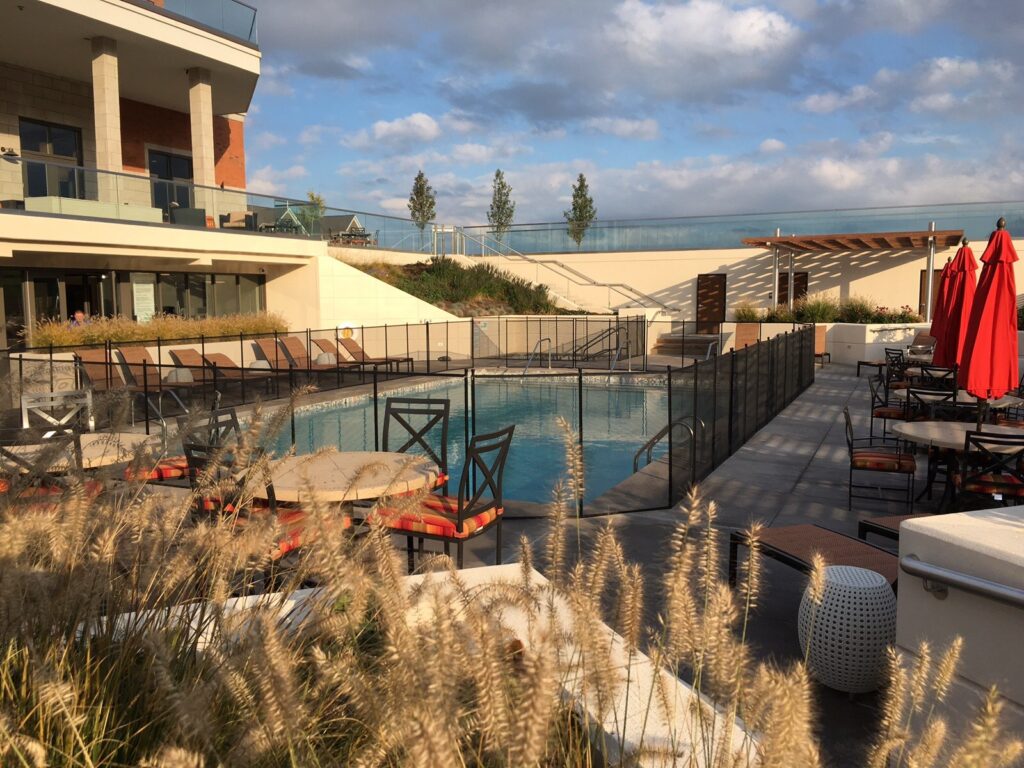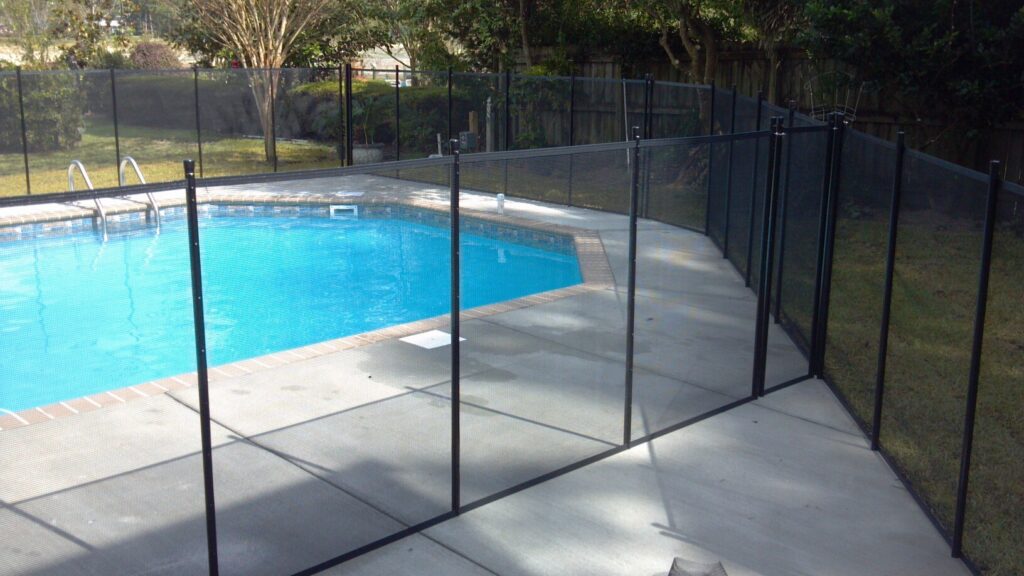In New York, pool fencing isn’t just a recommendation; it’s the law. Yet, dozens of preventable accidents happen yearly because of missing or inadequate installation of pool fences. Property owners are legally required to install barriers that meet specific safety criteria outlined in the New York State Residential Code, Section R326. These rules are designed to prevent drownings, reduce liability, and ensure safe access around residential and commercial pools.
Whether you’re installing a new pool or upgrading an existing fence, staying compliant can help you avoid fines, failed inspections, and insurance coverage issues. This guide outlines the exact pool fence requirements in NY to help you meet legal standards and safeguard your property.

The New York State Residential Code outlines specific pool barrier laws under Section R326. These requirements apply to both new and existing pools and are legally enforced statewide.
All pool enclosures must have a fence at least 48 inches (4 feet) tall, measured from the finished ground level directly adjacent to the barrier. This height must be consistent around the entire perimeter of the pool to prevent unauthorized or unsupervised access. Some cities require even greater fence heights than the state minimum to further reduce the risk of children climbing over the pool fence.
In areas with slopes or elevation changes, the measurement must be taken from the lowest point of grade adjacent to the fence. If the surface changes (e.g., mulch or gravel), it’s important to ensure those materials don’t reduce the effective height.
The fence must be constructed so that no gap, opening, or spacing allows passage of a sphere 4 inches in diameter or larger. This rule might differ for the space between vertical pickets, holes in mesh fencing, decorative cutouts in wood, and any other part of the structure. According to the Residential Code of New York State, the spacing shall not be greater than 1 ¾ in width where the barrier is composed of horizontal and vertical members, decorative cutouts, or there’s a chain-link fence.
There must be no more than a 2-inch clearance between the bottom of the pool fence and the ground. This ensures that children or pets cannot crawl underneath the barrier.
For surfaces like gravel, mulch, or uneven terrain, pool owners must take extra care to maintain this gap consistently. In areas with settling or erosion, periodic maintenance may be necessary to keep the clearance within code.
Gates providing access to the pool area must meet several strict requirements:
Properties that host multiple tenants or guests must comply with both statewide pool barrier laws (Section R326) and any local municipal codes that may be stricter.
Failure to comply can result in:
While the New York State Residential Code mandates a minimum pool fence height of 48 inches, certain municipalities across the state have adopted stricter local ordinances, often requiring fences to be 54 inches or higher.
These enhanced requirements are especially common in densely populated areas, where child safety, building density, and legal liability are heightened concerns.
While Long Island widely accepts the New York statewide standards on pool fences the Town of Hempstead mandates that pool fences be at least 5 feet (60 inches) high, exceeding the state’s 4-foot requirement. Additionally, fences must have top and bottom rails, with posts spaced no more than 8 feet apart. This regulation aims to enhance safety by making it more difficult for children to climb over the barrier.
If you are looking for a compliant pool fence installation in Long Island, make sure you consult with experienced pool fence installers to ensure each fence meets stringent safety standard, no matter the county you live in,
Yes, in most cases you do need a permit to install a pool fence in New York. While the exact process varies by municipality, most towns and cities require homeowners and property managers to:
Yes, removable mesh pool fences are allowed in New York, provided they meet all of the state’s safety requirements. According to Section R326, a mesh barrier must:
Removable mesh fences are a popular option for homeowners looking for flexibility and visibility, but they must be installed properly to pass inspection and meet local building codes.
Fines for failing to install or maintain a code-compliant pool fence in New York can be significant. Depending on the municipality and severity of the violation, penalties may include:
Beyond monetary penalties, lack of compliance can also affect insurance coverage, leaving property owners exposed to lawsuits or claim denials if an accident occurs.

Whether you’re a homeowner in Buffalo, a landlord in Queens, or a short-term rental host in Long Island, understanding and complying with the pool fence requirements in NY is essential. These laws are in place to protect children, reduce liability, and ensure peace of mind for families and property owners alike.
At Pool Guard™, we specialize in installing high-quality, code-compliant mesh pool fences that meet both state and municipal safety standards. With over 25 years of experience and a commitment to child safety, Pool Guard™ is a trusted name in pool protection across the U.S., including right here in New York.
Choose safety. Choose compliance. Choose Pool Guard™.
Please fill out the form below with your information. Your local dealer will be notified about your inquiry.
Please fill out the form below with your information. Your local dealer will be notified about your inquiry.